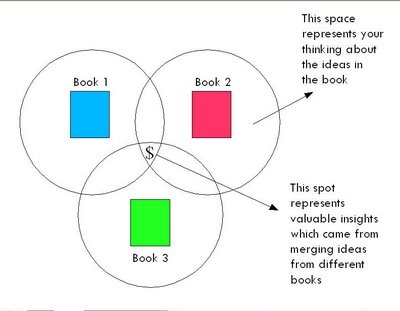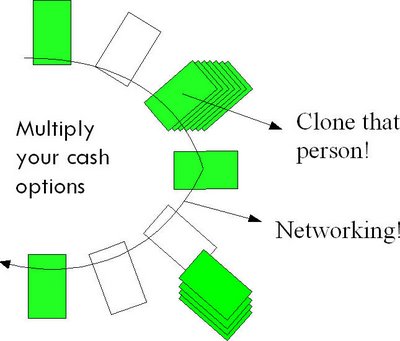They sell hope, not victory
Probably because they sell hopes to people who are mathematically challenged. I don't mean to offend anyone when I say "mathematically challenged," but only to submit that most people cannot predict, explain nor control the "doctrine of chance."
The doctrine of chance refers to the mathematics of odds. If you know how to calculate the odds, you will be able to make correct (i.e. profitable) decisions in life.
What happens, of course, is that we often let our emotions take over our rationality.
Why?
Probably because the news media and the advertising industry constantly seek to bring out an emotional response from us. Not surprisingly, we don't often use our rational capabilities.
We are conditioned to respond to strong emotional stimulus like greed (remember the Dot Com days?), fear, sex, violence, etc.
The fact is, the mainstream media is fundamentally dumb.
You can gain more instruction by reading a non-fiction book for 2 hours than you can by watching TV news for 20 hours.
The mainstream media has a huge commercial interest in keeping citizens in the dark. That's the real "Da Vinci Code": keep the masses in the dark, so they keep working hard for capitalists and keep paying taxes.
I stopped working for capitalists in June 2000, and started working for myself ever since. I think it's only a matter of time before a critical mass of people realize the same thing I realized six years ago: that we are constantly being deceived by the mass media, the advertising industry and even people close to us who are more interested in maintaining the status quo than to risk change.
One of my intellectual heroes, Dr Edward de Bono, in fact said the same thing in an interview; he said one of his mistakes was to assume that other people are interested in change and progress just because he was interested in change and progress.
In the end, the government, the ad industry and perhaps even your employer are more interested in giving you hope than they are in giving you the tools to really succeed.
As a quote in the Harvard Business Review magazine said, "Give a man a fish and he will work for you every day. Teach him how to fish and you just lost your leverage."
The success secret here is to realize that people will never reveal to you their success secrets, because then they would lose their edge. To get to know other people's success secrets, you have to read between the lines and also infer all possible facts and methods from the visible aspects of their actions and behavior.


